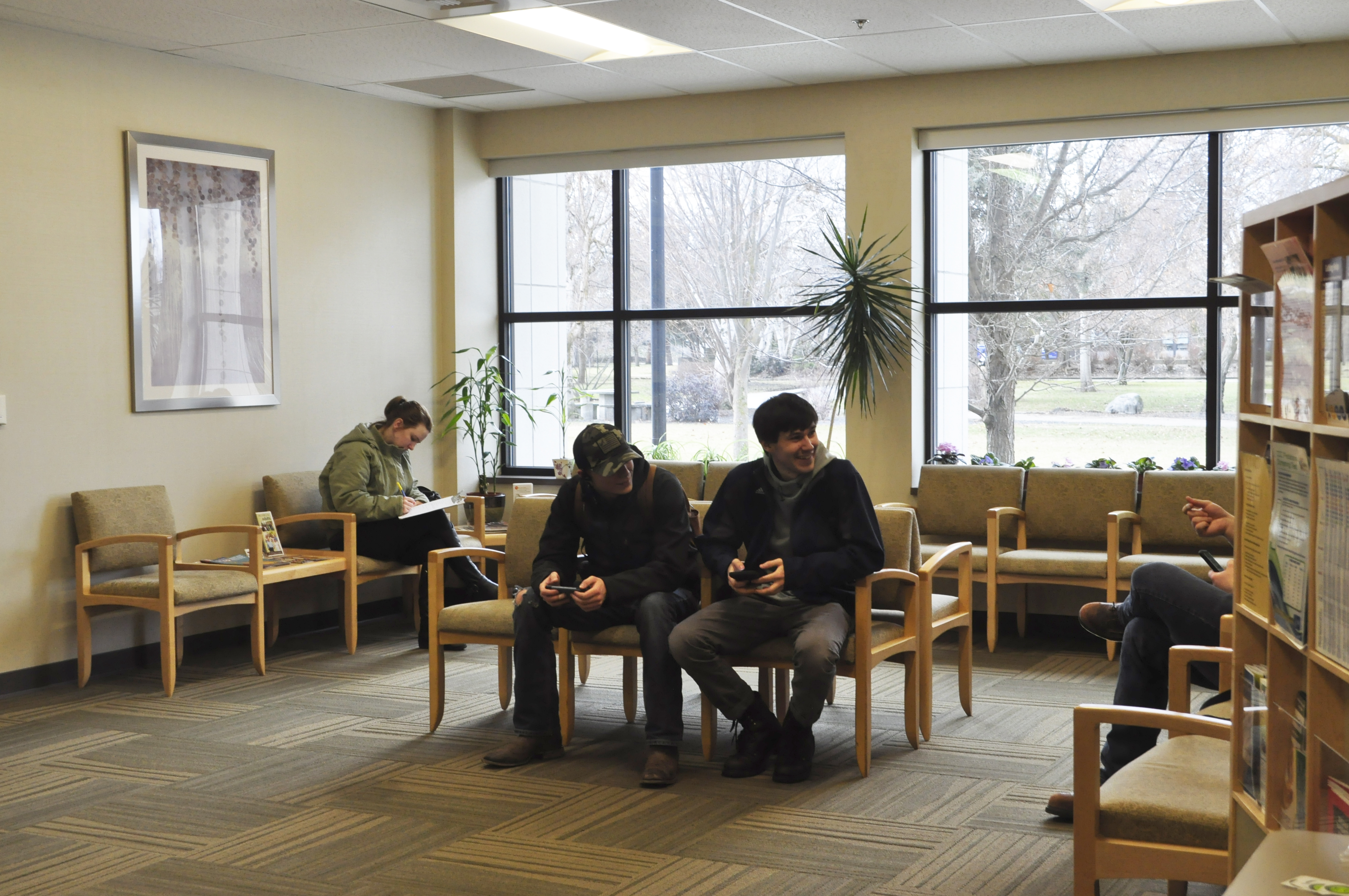As she sat there holding her friend’s baby in the early afternoon, Maya, an SFCC student, spoke to me about her experiences with our student health clinic. She talked about how she enjoys how inclusive and “free and open” it is, as well as how the staff are “very nice and friendly and welcoming” to all patients.
Kathy LoMonaco, the health information manager at the student health clinic located on Spokane Community College’s campus, said the main goal of the clinic is to both provide the excellent service Maya spoke of, but to also “support the physical and emotional health of the Community Colleges of Spokane student body through the provision of quality, accessible, and cost-effective healthcare on campus,” as stated in the health clinic’s mission statement.
Roughly 2,000 to 3,000 CCS students use this clinic yearly, according to estimates by LoMonaco.
The health clinic provides a range of services for both physical to mental health, and services have been expanded since opening. They can provide first aid and basic urgent care, Department of Transportation and sports physical exams, flu shots, vaccines, stitches can be removed (but not sewn), and services not advertised have been performed as well, according to LoMonaco and the clinic’s provided pamphlets.
The clinic even offers on-site lab testing for pregnancy, strep and urinalysis. The clinic can also order lab and imaging studies for students as well. Refills and concerns about medication are also offered.
Those providing said services are nurse practitioners from Washington State University, who both teach and work at the clinic.
Besides physical health, the student health clinic also has mental health services provided by both intern therapists at their master level of study from Gonzaga and Whitworth universities and a psychiatric nurse practitioner who sees both SCC and SFCC campuses and has experience in medication management, LoMonaco explains.
The mental health services covered by the student health clinic include substance abuse, LGBTQ+ issues, disordered eating, domestic violence, sexual assault and mental illnesses such as depression and anxiety, as well as grief and loss, as stated on the clinic’s pamphlets.
The clinic first opened in 2006 as a mobile unit with a grant with WSU nurse practitioners being staffed. At the end of the year, both campuses asked students if they wanted to keep the clinic running, and the vote was a unanimous yes. With that, the clinic gained its first permanent home at SCC.
Sadly, though, the only students who seem to take advantage of the clinic are Allied Health and athletes, despite the fact that almost 1.7 million students still remain without health coverage in the U.S., according to Inside Higher Ed’s article, “After the ACA, Fewer Uninsured Students.” SFCC students are encouraged to take advantage of this clinic, especially during the winter and flu season. Though a couple other community colleges in Washington do have clinics, our clinic is the only one with nurse practitioners able to diagnose and refill prescriptions.
As LoMonaco said, you should “take advantage of it” to the fullest extent, especially if you’re without health insurance, as the free to low cost is certainly an incentive to do so.


